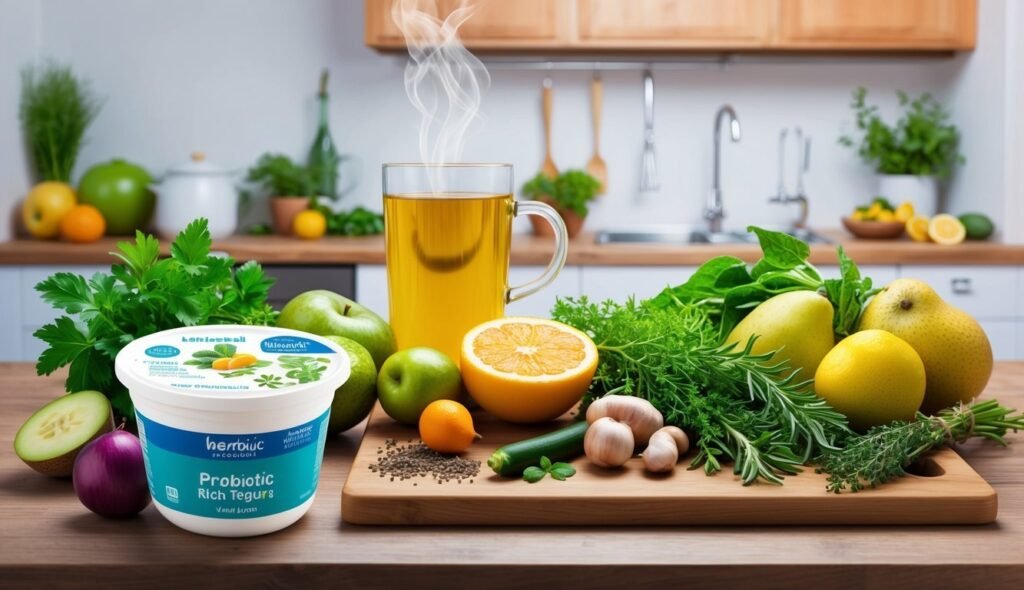Bloating and indigestion can be really uncomfortable experiences that many of us face at some point.
It can feel frustrating when I’m trying to enjoy a meal, but my stomach seems to have other plans.
Finding natural remedies can not only bring relief but also help me manage these issues more effectively.
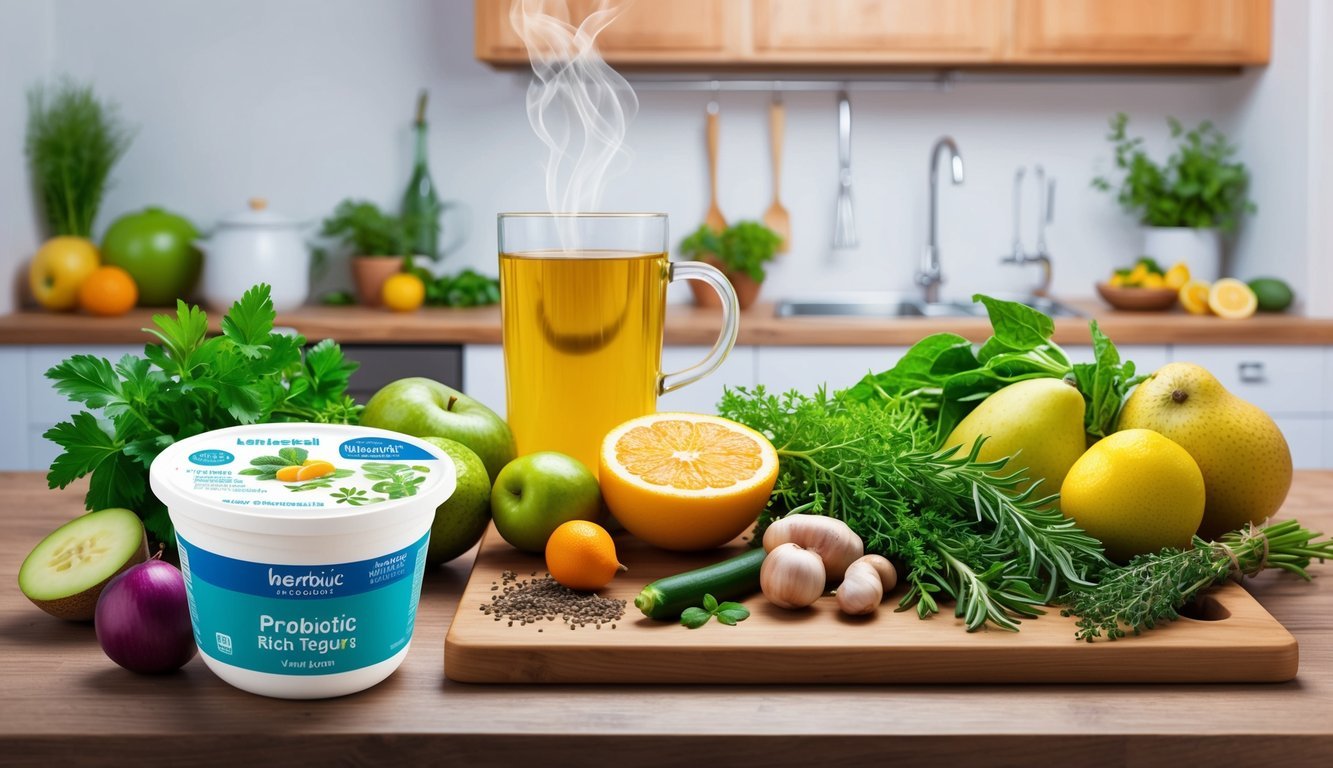
I’ve discovered that there are multiple natural approaches to tackle bloating and indigestion without relying solely on over-the-counter medications.
These remedies often draw on what’s readily available at home and can be simple to incorporate into my routine.
By exploring these options, I can better support my digestive health and feel more at ease.
1) Peppermint Tea
When I need relief from bloating or digestive discomfort, peppermint tea is a go-to for me.
It’s known for its antispasmodic properties, which help relax the muscles in my digestive tract.
This can ease issues like irritable bowel syndrome (IBS) and general indigestion.
I like to prepare my peppermint tea using fresh or dried leaves.
It’s really simple: I just steep 1-2 teaspoons of leaves in hot water.
Fresh leaves give a more potent flavor, but dried ones work just as well.
Drinking peppermint tea not only soothes my stomach but also provides a refreshing taste.
It’s a nice way to feel comfortable after a heavy meal.
Plus, sipping on a warm cup is relaxing, making it a perfect addition to my routine when I’m feeling off.
Ginger Root
I find ginger root to be a fantastic remedy for bloating and indigestion.
Its natural properties can help stimulate digestion and reduce discomfort from gas.
When I experience bloating, I often brew a cup of ginger tea.
I simply peel a piece of ginger, slice it, and let it steep in hot water for about ten minutes.
The warmth and aroma really help soothe my stomach.
In addition to tea, I sometimes chew on raw ginger.
It has a strong flavor, and just a small piece can provide relief.
I’ve read that incorporating ginger into meals is also beneficial, whether in stir-fries or smoothies.
For those who prefer supplements, ginger is available in capsule or powdered form.
This might be convenient for anyone on the go.
Using ginger regularly can keep my digestive system in check.
It’s a simple addition to my routine that makes a noticeable difference.
3) Chamomile Tea
I often turn to chamomile tea when I’m feeling bloated or dealing with indigestion.
It’s soothing and has a gentle effect on the stomach.
Chamomile can help relax the digestive tract, which might ease any discomfort caused by gas or bloating.
I appreciate its calming properties too; it helps reduce stress, which can often worsen digestive issues.
Drinking a cup of chamomile tea can be part of my routine after meals.
I like to brew it fresh and sip it slowly to really enjoy the benefits.
It’s a nice way to wind down as well.
I’ve found that regular consumption of chamomile tea may help prevent future bloating.
It’s nice knowing that a simple herbal remedy can provide some relief without any harsh side effects.
4) Fennel Seeds
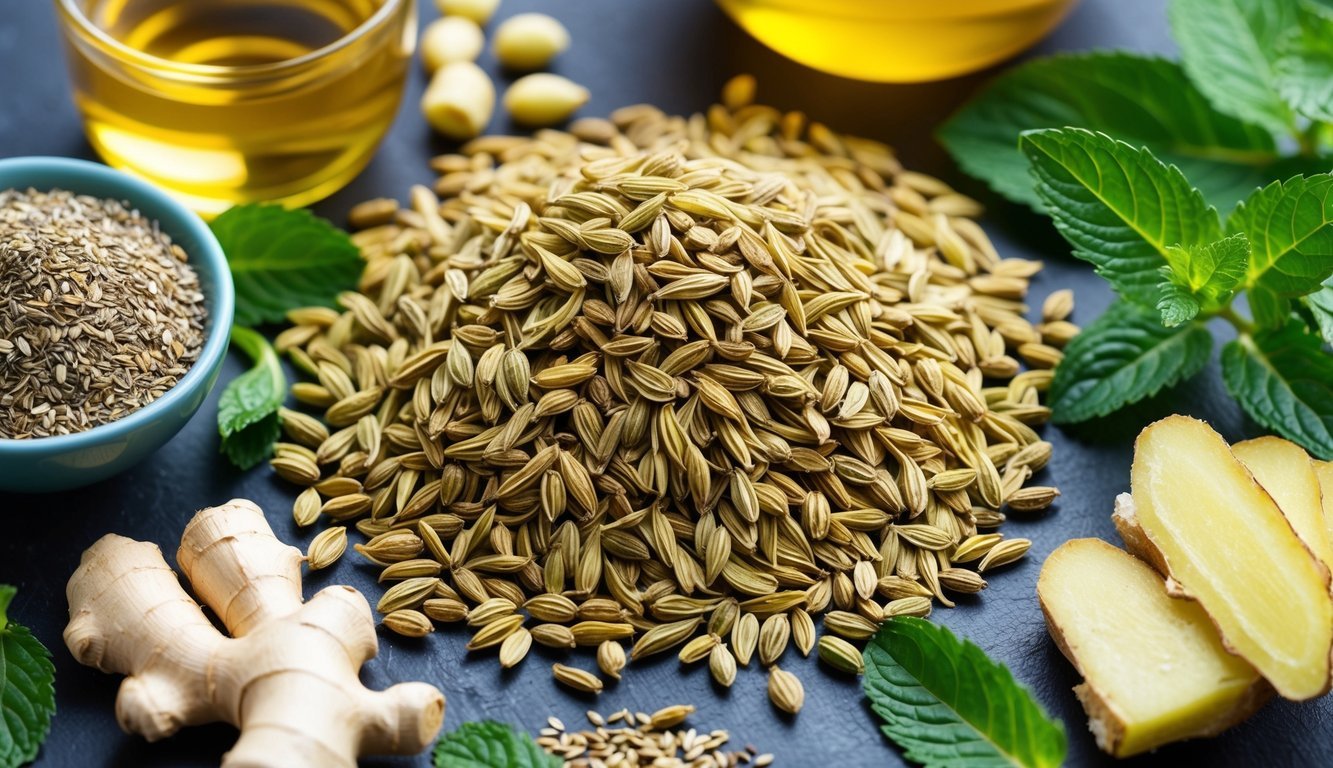
I’ve found fennel seeds to be pretty helpful for tackling bloating and indigestion.
They contain a compound called anethole, which may help relax the muscles in the gastrointestinal tract.
This relaxation can ease discomfort and improve digestion.
I like to make fennel tea by steeping 1-2 teaspoons of fennel seeds in boiling water for about 15 minutes.
It’s soothing and offers great relief.
You can also sprinkle ground or whole seeds on salads, soups, or even yogurt to enhance digestion.
Another trick is to chew on half a teaspoon of whole fennel seeds after meals.
It can stimulate digestion and reduce gas production.
Plus, they have antispasmodic properties that can calm an upset stomach.
Using fennel seeds regularly may also help with other digestive issues, like gas pain and constipation.
They’re a versatile natural remedy that I often keep in my kitchen.
5) Apple Cider Vinegar
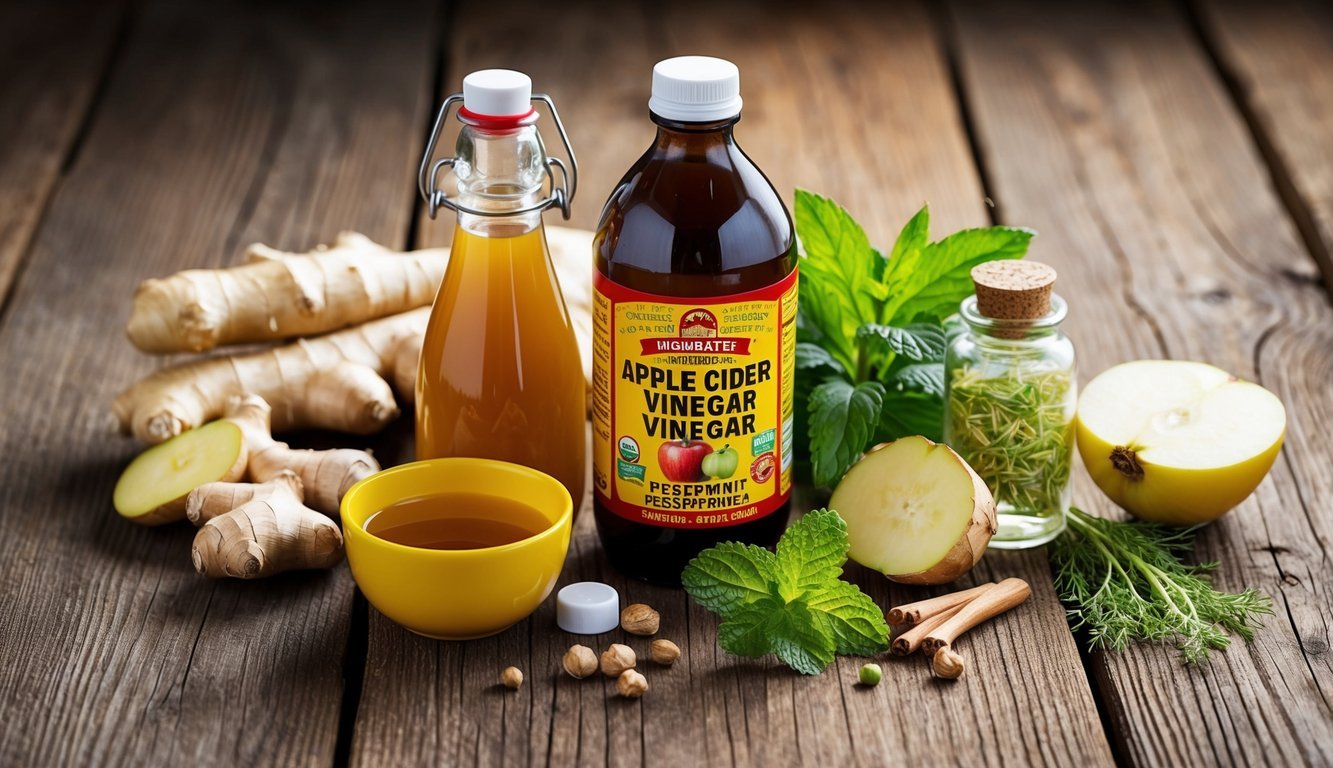
I often turn to apple cider vinegar (ACV) when I’m feeling bloated or dealing with digestion issues.
It’s known for its potential to help with digestion and reduce gas.
To use it, I mix one tablespoon of raw, unpasteurized ACV with a cup of warm water.
I usually drink this about 15-20 minutes before a meal.
It’s a simple routine that seems to make a difference.
Sometimes, I add ACV to my tea or even drizzle it on salads.
It gives a nice zing without being overpowering.
While many people find relief with ACV, I’ve learned it’s not for everyone.
It can interact with certain medications and may affect potassium levels.
So, I always keep that in mind.
If I notice any discomfort after using it, I make sure to stop.
Listening to my body is key when trying natural remedies like this.
6) Aloe Vera Juice
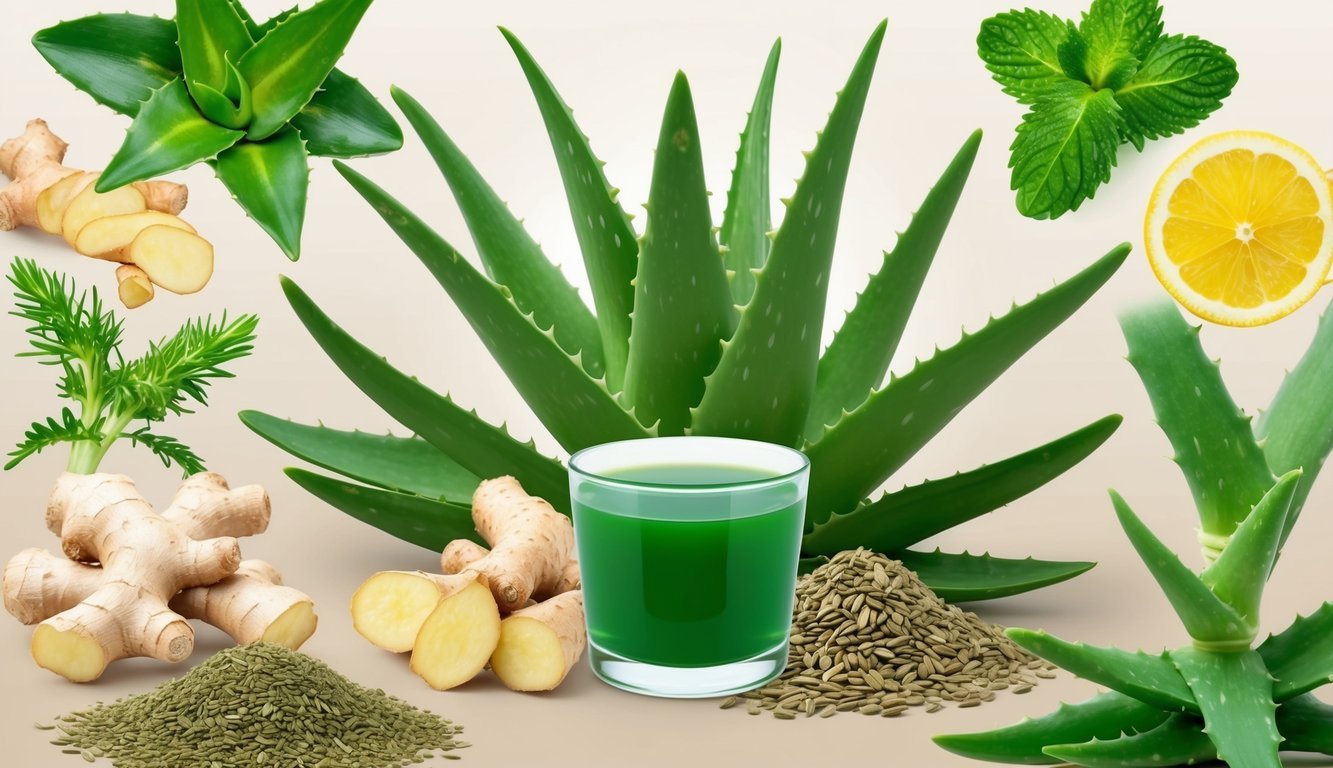
I’ve found aloe vera juice to be quite helpful for digestion.
It has soothing properties that may reduce discomfort from bloating and indigestion.
Drinking a small amount can calm the irritation in the digestive tract.
I usually take about 10 ml, which is roughly two teaspoons, each morning before breakfast.
This routine has helped me feel more comfortable as I go about my day.
Aloe vera juice is believed to contain vitamins and antioxidants that support overall gut health.
Adding it to my diet was an easy choice, especially since it’s generally safe and well-tolerated.
If you’re looking for a natural option to ease digestive issues, aloe vera juice might be worth considering.
It’s simple to incorporate, and I appreciate how refreshing it can be.
7) Turmeric and Black Pepper
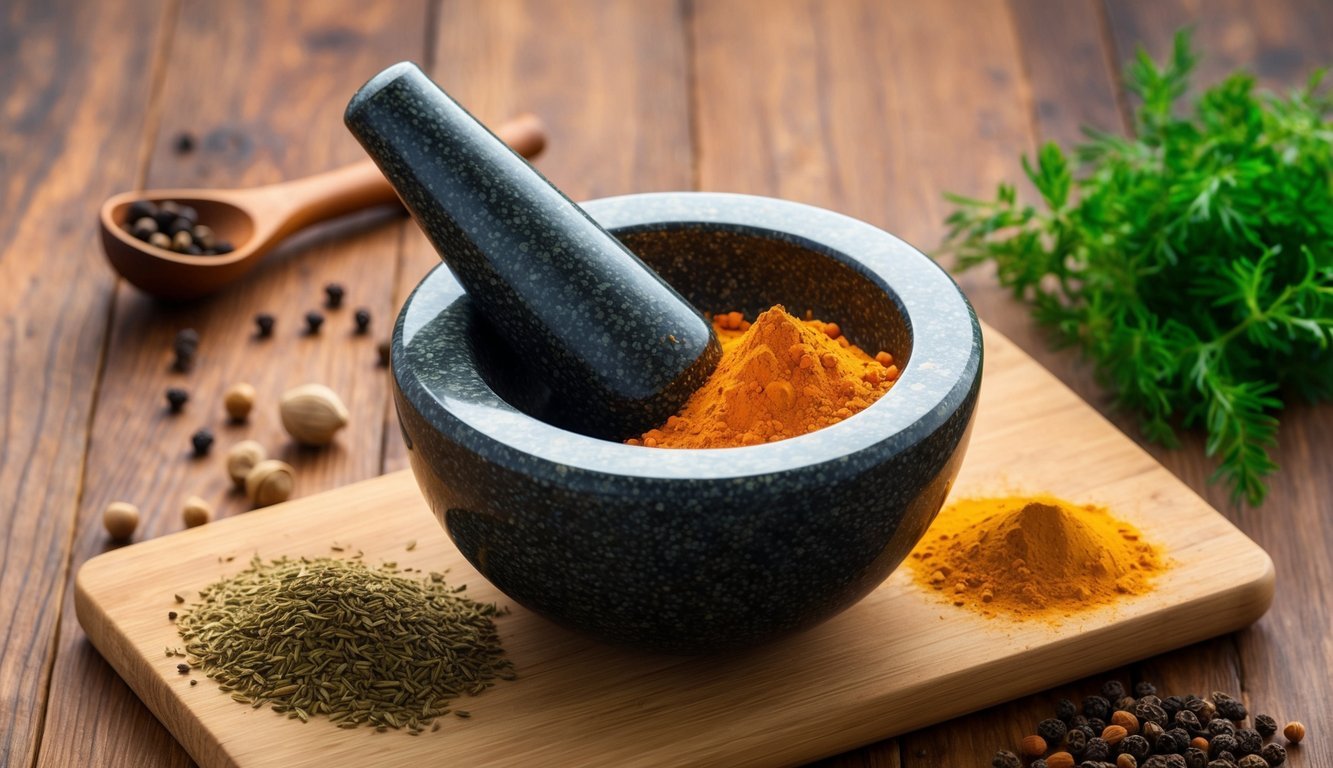
Turmeric has become one of my go-to remedies for bloating and indigestion.
It contains curcumin, which has anti-inflammatory properties that can soothe the digestive tract.
When I combine turmeric with black pepper, the benefits increase.
Black pepper contains piperine, which enhances the absorption of curcumin.
This combo makes for a powerful digestive aid.
I often make a simple tea with turmeric and ginger.
I add a dash of black pepper to boost the effects.
Just a half teaspoon of turmeric, a pinch of black pepper, and ginger in hot water work wonders.
Another easy way to enjoy these spices is through cooking.
I sprinkle them in soups, stir-fries, or smoothies.
It’s a tasty way to incorporate them into my meals.
Using turmeric and black pepper is not only beneficial for digestion, but they also add flavor to dishes.
It’s a win-win for me.
8) Lemon Water

I’ve found lemon water to be a refreshing way to help with bloating.
The acidity in lemon juice may support digestion by promoting the production of digestive enzymes.
This can help break down food more effectively.
Additionally, lemon water acts as a gentle diuretic, which can help flush out excess sodium and water from the body.
Staying hydrated with lemon water may also support overall gut health and reduce bloating naturally.
Incorporating this simple habit into your daily routine can promote better digestion and a feeling of lightness.
When I drink lemon water, I notice it encourages me to stay hydrated.
Staying hydrated is essential for minimizing bloating, as it helps maintain the right balance of fluids in my body.
Lemon water can also act as a mild diuretic, which means it may encourage urine production.
This can help reduce water retention and ease that uncomfortable, bloated feeling.
For a quick remedy, I often mix the juice of half a lemon with warm or cold water.
It’s a simple drink I can enjoy at any time of the day.
Plus, it adds a nice zing to my routine.
9) Probiotics

I’ve found that probiotics can be a game changer for reducing bloating and digestive discomfort.
These beneficial bacteria help balance the gut microbiome, which is essential for proper digestion.
Adding probiotics to my routine has helped support healthy digestion.
I often opt for fermented foods like yogurt and kefir.
They’re easy to incorporate into meals and taste great too.
I’ve also looked into probiotic supplements, especially those recommended for digestive health.
Brands like VSL #3 are well-researched, particularly for those with irritable bowel syndrome (IBS).
Probiotics can assist in managing symptoms like gas and bloating.
When I take them regularly, I notice a reduction in discomfort.
They might work differently for each person, but for me, they’ve made a noticeable difference.
Understanding Bloating and Indigestion
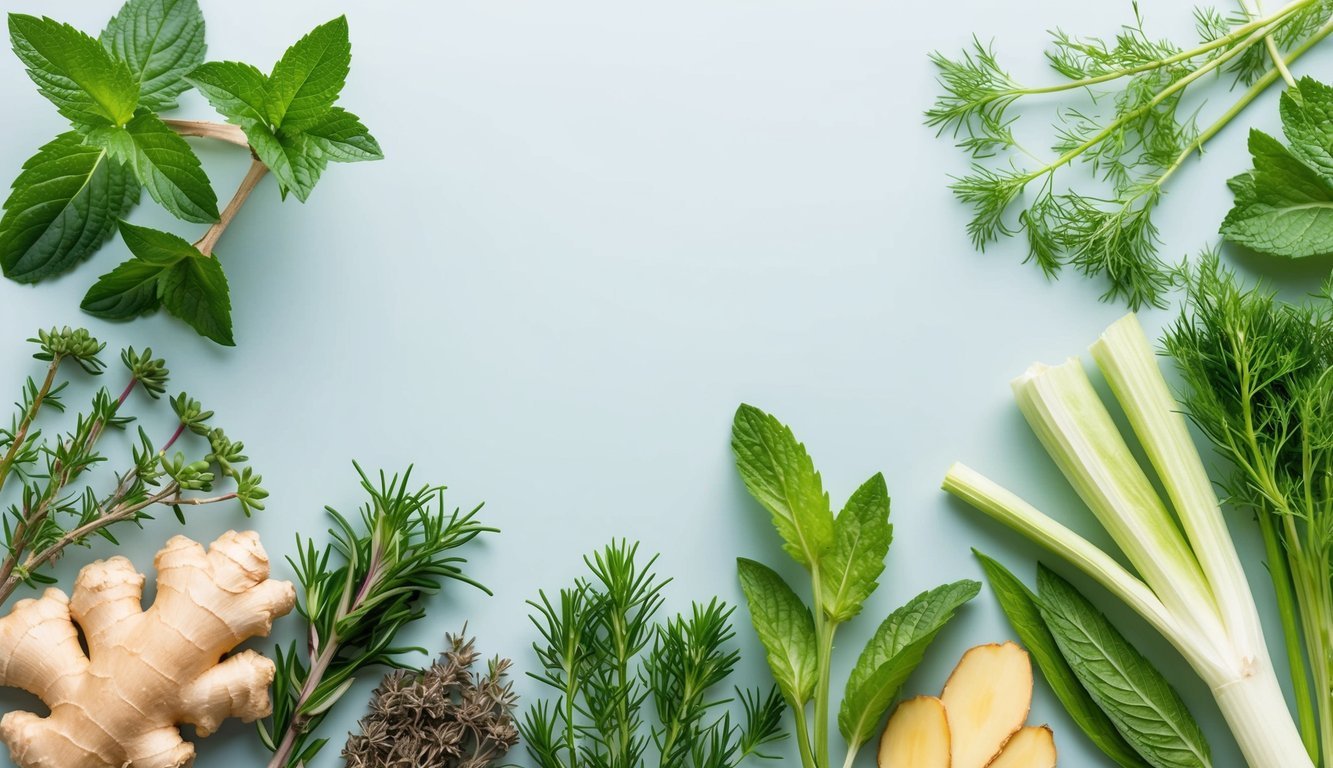
Bloating and indigestion are common issues that many of us experience.
They can be uncomfortable and often stem from various factors, including what we eat and how we eat.
Here’s a closer look at their common causes and symptoms.
Common Causes
Excess gas in the digestive tract often causes bloating.
Certain foods, like beans, lentils, and cruciferous vegetables, can lead to increased gas production.
Eating too quickly can also make you swallow air, contributing to the bloating.
Indigestion, or dyspepsia, can be triggered by several factors such as:
- High-fat meals: These can slow down digestion and lead to discomfort.
- Spicy foods: They may irritate the stomach lining.
- Stress: It affects the digestive system and can worsen symptoms.
Food intolerances, particularly to lactose or gluten, can also lead to these uncomfortable feelings.
Symptoms to Watch For
Recognizing the symptoms of bloating and indigestion can help address the issues more effectively.
Common signs include:
- Bloating: A feeling of fullness or pressure in the abdomen.
- Gas: Increased flatulence or burping.
- Discomfort: Pain or cramping in the stomach area.
- Nausea: A feeling of sickness, especially after eating.
If you notice persistent symptoms like vomiting, severe pain, or unintentional weight loss, consult a healthcare professional.
These could indicate more serious conditions.
Lifestyle Changes for Better Digestion
Making some key adjustments in your lifestyle can significantly improve digestion and help with issues like bloating and indigestion.
Here are some important changes I’ve found helpful.
Dietary Adjustments
I pay close attention to what I eat.
Incorporating more fiber into my meals is essential.
Foods like whole grains, fruits, and vegetables not only promote healthy digestion but also help prevent constipation.
Avoiding processed foods and those high in trans fats is crucial too.
Foods rich in these can disrupt your digestive tract.
I also steer clear of common irritants like spicy dishes, caffeine, and excessive sugar.
Here’s a quick list of fiber-rich foods to consider:
- Oats
- Beans
- Chia seeds
- Broccoli
- Berries
These foods help maintain regularity and improve gut health.
Importance of Hydration
Staying hydrated is another priority for me.
Drinking plenty of water aids in digestion by helping to break down food so my body can absorb the nutrients.
I aim for at least eight glasses a day.
However, I adjust my intake based on my activity level.
I also limit carbonated beverages, as they can introduce gas into my digestive system, leading to discomfort.
Instead, I opt for flat water or herbal teas, which can be soothing.
Additionally, keeping a bottle of water handy throughout the day makes it easier to drink consistently.
Hydration can truly make a difference in how well my digestive system functions.

